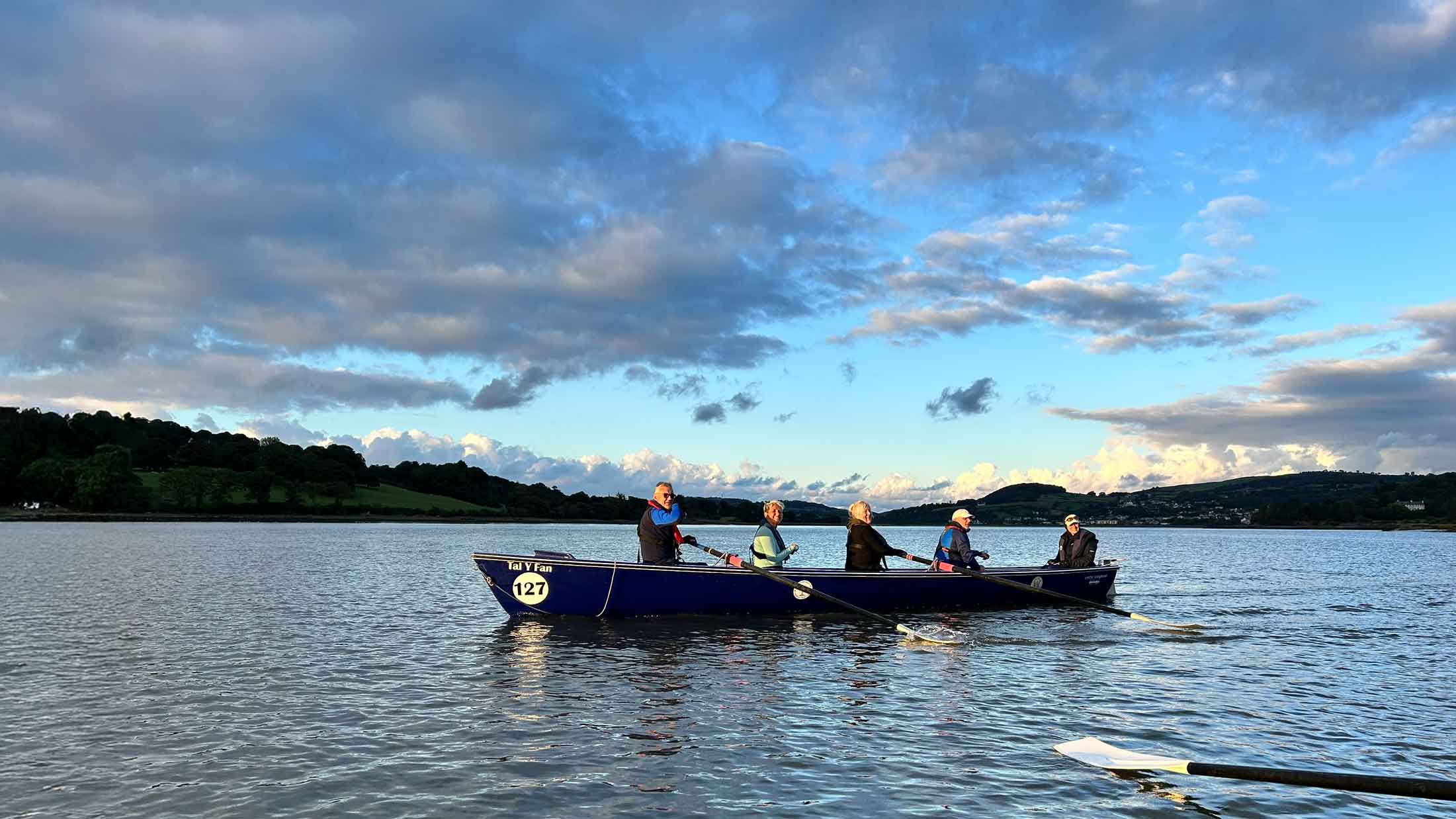How to get started
If you are wondering if rowing is for you, why not join us for an introductory session to experience Celtic Sea rowing on our beautiful River Conwy waters.
As a budding rower or a cox in the making, grab yourself a place on one of our Beginners’ Courses to get some Celtic longboat experience and basic training.
To book onto a course or get more information contact Peter Hamer
Mobile: 07885 245 052
email: peterhamer.maritime@gmail.com
General information for rowers
Rowing is great fun, and a good, whole-body workout in the great outdoors! So there’s a few things we need to bring with us on our adventures
- The first thing to grab is a waterproof bag or dry bag, to carry and protect any kit and belongings you need to keep with you, such as…
- Water bottle! Hydration is essential, so always bring with you a water bottle filled with some refreshing drinking water. Top tip: the bottles with a cap to keep the mouth piece clean and dry are the best
- Personal medication that you need to carry with you e.g. asthma inhalers or EpiPen
- Valuables e.g. mobile phone, keys, wallet
- Alternative clothing for changing weather conditions
- Your footwear has a number of boxes to tick…they need to protect your feet when walking across slippery, sandy or pebbly shorelines as well as on pontoons or jetty’s – so good sole grip and flexibility is important. They need to be washable as they will get wet, salty, muddy and sandy. Finally whilst rowing they need to keep your feet warm and secured well into the footbox – so they need to be a good fitting, full foot shoe, that’s not too bulky, so no sandals or platformed shoes.
- Wetsuit shoes are a good option for summer rowing. Choose a pair with a decent sole for good grip and sole protection
- Wetsuit boots with thicker neoprene (~5mm) and rubber soles are great for winter rowing and even better when worn with water & windproof knee socks or waders.
- What to wear? Dress in something comfortable and breathable, that allows you to move freely when rowing, as well as getting in and out of the boats. Typically leggings or shorts, T-shirts with sweatshirts or hoodies are the foundation clothing items. Also wear clothes that you do not mind getting wet or a little muddy from boat launching and retrieving.
- Layers are the answer to every weather condition! Layer up in the winter, with a thermal base layer, and delayer as you warm up rowing. Wear lighter layers in the summer, ensuring you always have a base layer of sunscreen to protect uncovered skin from the sun.
- Carry or wear waterproofs if there’s a chance of rain
- Pack the sunnies…water reflects any sunlight really well
- Hat or cap for sun, rain or windchill protection
- Gloves for rowing are a personal preference….depending on your rowing technique gloves can lessen or increase the likelihood of blisters. In summer lightweight, fingerless gym or cycling gloves are options. In winter, waterproof, full-hand cycling or ski gloves may be needed.
We do have a range of Deganwy Rowers branded kit, which can be purchased directly from the following suppliers:
Happy and safe rowing
Safety is paramount when rowing, so here are some key points to remember.
Lastly, happy rowing, soak up the beauty of the Conwy coast and stay safe!




